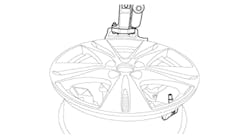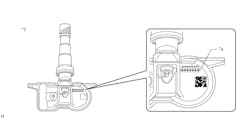There is no record of the first sales transaction. Perhaps it involved one caveman selling a loin cloth to another caveman. If so, I’ll bet it was advertised as “extra soft.” That’s called salesmanship!
Eventually, the buyer needed proof of the purchase, and the receipt was born. Whether chiseled into stone, written on parchment or printed automatically, receipts are a staple of any sales transaction.
One thing has not changed through the years, however: the importance of building a relationship between the buyer and seller. Usually that means a lot of face time.
Talking to a buyer face to face will always be the best way to sell. In our predominantly DIFM (do it for me) industry, it is almost a necessity. And who better to do that than you, the independent tire dealer?
Ah, but what about online selling? The internet accounts for billions of dollars of impersonal sales every year. That cannot be ignored by anyone.
However, ours is a service industry, which means at some point, someone has to work on the vehicle. I can buy something from eBay or Amazon and never talk to a person. There is some email communication between the parties, but it’s superficial at its core.
The best way to sell tires is to find out what the driver’s needs are, which requires getting in touch with the consumer. The Tire Rack’s founders created a nationwide mail-order (and later internet) sales model that gives tire buyers everything they need to make informed choices. The interaction involves a call center with highly trained personnel, comparison testing and billions of miles of real-world tire data.
When it comes time to mount and balance the tires, an affiliate dealer network takes over. In other words, human interaction is the key to selling tires and vehicle services online, even though the buyer and seller are not in the same room, much less the same state.
In contrast, eliminating interaction seems to be the Blitzify LLC way. With the help of social media, the company is promoting a new mobile application designed to “compare exact quotes from multiple providers and compare prices with real-time data at the push of a button.”
But that’s not all. Right from the opening paragraph in its press release, the company uses hyperbole and scare tactics to get its point across.
“In the digital age of empowered consumers, it’s surprising that many people still make the often costly decision of visiting the auto repair shop nearest to their home or workplace. For those who are unaware of exactly how much a service should cost, this can result in wild overcharging of hundreds to thousands of dollars.”
First, how is it surprising consumers visit the local auto repair shop? Buying tires or getting your vehicle serviced is an unwanted but necessary purchase, so naturally consumers would gravitate toward convenience. In addition, they probably know the owner or store manager, whom they have grown to trust.
Second, calling the visit an “often costly decision” is a relative statement, so relative that it is meaningless. You could just as easily say “By using the Blitzify app, none of your decisions will be costly.” It’s conjecture, pure and simple. And heavily biased, at that.
Third, to suggest unknowing consumers could end up being wildly overcharged can be said about any product in any industry. In this case, it is meant to strike fear into the hearts of vehicle owners. It also perpetuates a stereotype.
In the end, it’s all about value, not cost.
Finally, the internet gives all consumers a handy, go-to resource to research products and service providers. But saying consumers are empowered doesn’t mean they are experts. No consumer can know more about tires following a half-hour of research on the internet than a 20-year industry veteran behind the counter of a retail tire store. If you could become a surgeon by checking out YouTube videos, why would you go to school 11 years beyond high school? Press releases like this mistake empowered for entitled.
Blitzify glorifies putting out automotive services for bid, without any discussion of quality. And it seems to target millennials, some of whom may be buying tires or automotive services for the first time.
I think it’s fair to say members of the Y Generation put a premium on mobile phones and convenience. But to imply they are easy to manipulate and unable to interact with others doesn’t give them enough credit. To do so is a recipe for failure.
If you have any questions or comments, please email me at [email protected].
To read more of Bob Ulrich's editorials, see:
Politically Incorrect Advertising: Not From Trump or Clinton, But BMW
On the Rise: As We Pay Tribute to Gen Y, We Build a Community




